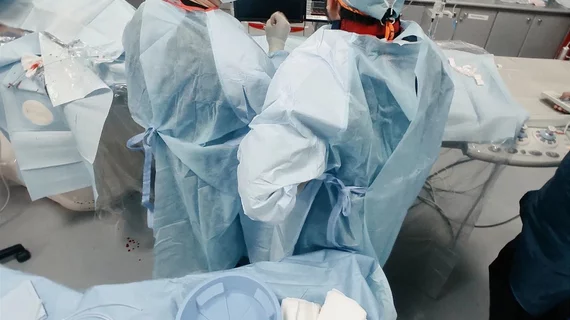4 support catheters receive FDA clearance for coronary use
Transit Scientific, a Salt Lake City-based healthcare technology company, has received U.S. FDA clearance for its XO Cross Support Catheter Platform, already approved for peripheral vascular procedures, to be used in coronary procedures as well.
The 2 French Coronary XO Cross 0.014 Microcath, which works with standard 0.014-inch guidewires, will be launched in lengths of 90, 135, 150 and 175 cm.
The new platform was designed to help interventional cardiologists and other clinicians treat patients with coronary artery disease. They were developed with “pushability, trackability, flexibility and torque response” in mind, the company said in a statement.
“This new coronary 510(k) clearance helps us continue to build on the clinical success we’ve had with our XO Cross for peripheral platform,” noted Greg Method, president & CEO of Transit Scientific. “This is an important milestone for our team as it further expands our mission of delivering novel and effective technologies for the treatment of arterial and venous disease.”
“We need better more controllable, and more durable microcatheters and technology for use in complex coronary lesions and chronic total occlusions,” added Vasili Lendel, MD, an interventional cardiologist with Arkansas Heart Hospital who specializes in coronary and peripheral interventions. “The trackability and high-torque response of the XO Cross Platform will help us gain wire access in challenging coronary tortuosity and worst-case calcium and plaque. We've seen great results with XO Cross in our peripheral vascular procedures, so we look forward to using this platform for percutaneous coronary interventions.”
Related Interventional Cardiology Content:
Interventional cardiologists complete first heart procedure of its kind in North America
Q&A: New ACC President Edward Fry discusses the past, present and future of cardiology
Virtual reality specialists launch new training solutions for endovascular surgery
Drug-coated balloons comparable to drug-eluting stents when PCI patients have a high bleeding risk

